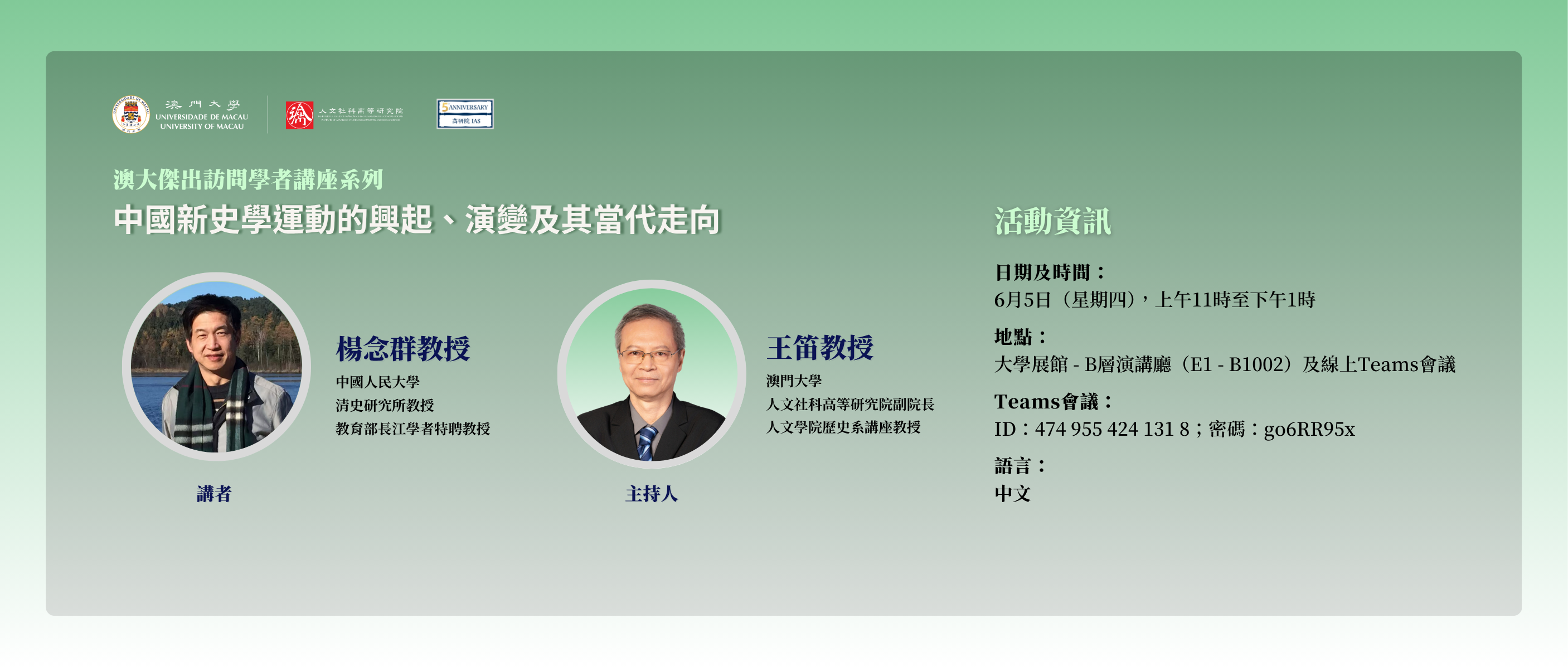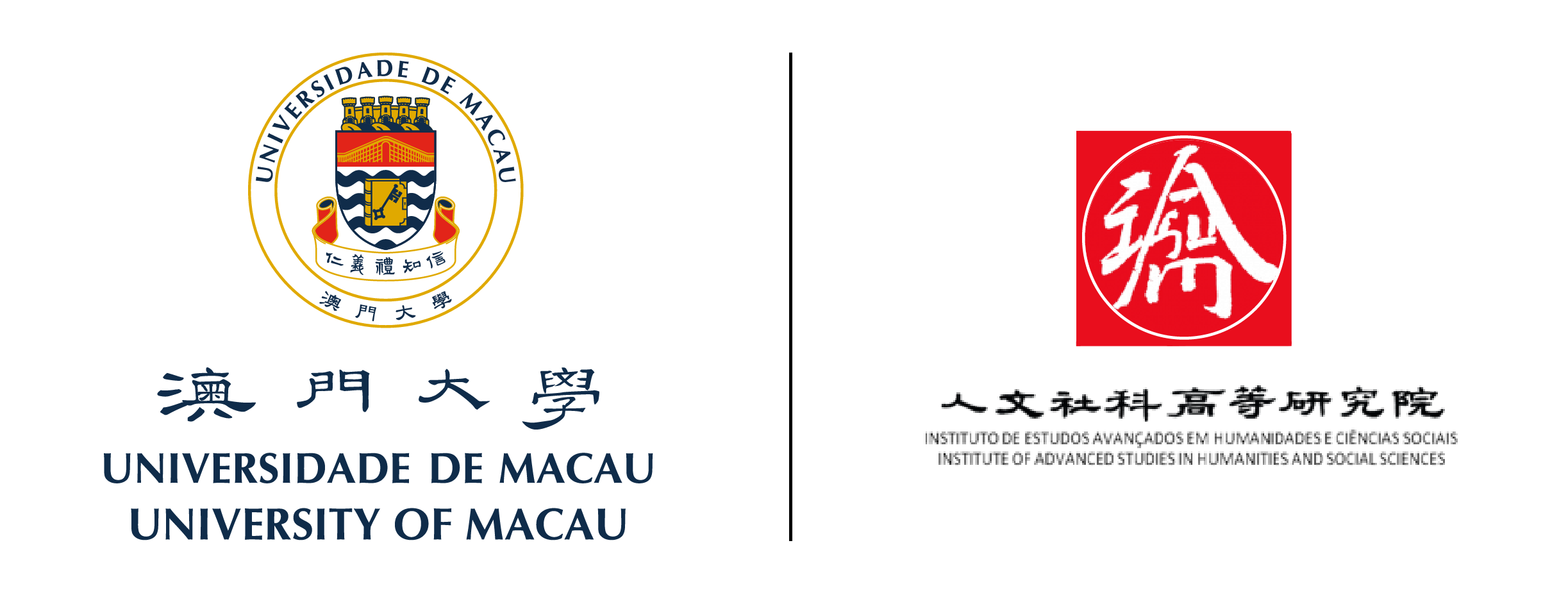
On June 5, the Institute of Advanced Studies in Humanities and Social Sciences (IAS) at the University of Macau hosted a UM distinguished guest lecture titled “The Emergence, Development, and Contemporary Direction of the New Historiography Movement in China.” Delivered by Professor Nianqun Yang, Professor at the Institute of Qing History, Renmin University of China, Changjiang Distinguished Professor, Ministry of Education, the lecture was moderated by Professor Di Wang, Associate Director of IAS; Chair Professor of the Department of History of FAH. The lecture offered a thorough analysis of the “New Historiography” movement’s historical and theoretical development.
Professor Yang began with Qichao Liang’s early 20th-century “New Historiography,” highlighting three features: replacing cyclical historiography with evolutionary theory, positioning historiography to serve modern nation-building by critiquing imperial genealogies, and fostering nationalism through “national” and “people’s” history narratives. Liang’s innovations disrupted traditional narratives and inspired exploration of modernity and national identity. Yang outlined three stages: from the 1900s to 1940s, shaped by Spencerian and Marxist thought, focusing on historical continuity and rupture; from the 1950s to 1980s, dominated by materialist historiography emphasizing social restructuring; and since the 1990s, blending modernization with postmodern and postcolonial approaches, prioritizing non-linear narratives and regional social history. Professor Yang cited John King Fairbank’s The United States and China to illustrate the “Western impact—Chinese response” framework and used his Remaking Patients—Space Politics Under the Conflict Between Chinese and Western Medicine (1832–1985) to show how spatial perspectives reveal grassroots society and medical history details, weaving spatial and temporal dynamics to deepen understanding of Chinese modernity.
The discussion explored the literary quality of history, its theoretical influences, the political role of historiography, global history, the tension between modernity and nationalism, historiographical schools, and grand narratives. Professor Yang emphasised the complementary role of spatial perspectives, historiographical independence, middle-range theories, and native narratives.
The lecture, broadcast live on Bilibili and Teams with nearly 100 participants online and onsite, provided a nuanced exploration of Chinese historiography, inspiring reflection on its methodologies and Chinese modernity.








